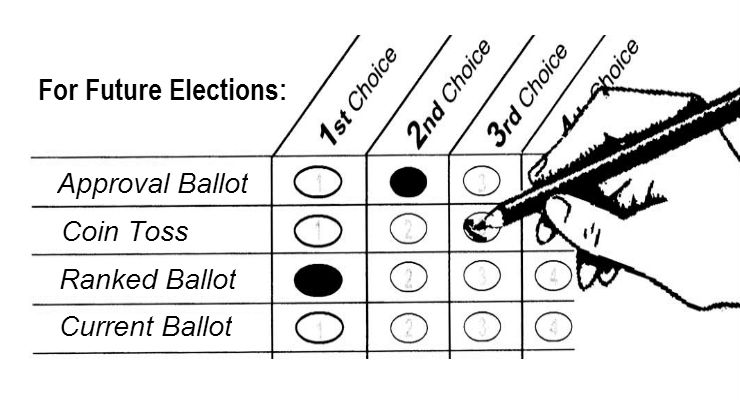
The latest comes from an article by CT Post:
The odds are stacked against a proposed constitutional amendment to expand Maine’s system that allows voters to rank their candidates from first to last on the ballot. The Democratic-led House voted 85-54 on the amendment Tuesday. Constitutional amendments need two-thirds votes in both chambers along with voter approval.
Lawmakers have killed bills to repeal the voter-approved system, which Mainers endorsed in 2016 and 2018 state-wide votes.
See the full story here. According to Democracy Chronicles’ friends at at the nonpartisan nonprofit FairVote, an organization with its headquarters in Takoma Park, Maryland:
Ranked choice voting (RCV) makes democracy more fair and functional. It works in a variety of contexts. It is a simple change that can have a big impact. With ranked choice voting, voters can rank as many candidates as they want in order of choice. Candidates do best when they attract a strong core of first-choice support while also reaching out for second and even third choices.
When used as an “instant runoff” to elect a single candidate like a mayor or a governor, RCV helps elect a candidate that better reflects the support of a majority of voters. When used as a form of fair representation voting to elect more than one candidate like a city council, state legislature or even Congress, RCV helps to more fairly represent the full spectrum of voters.
Maine is the first state to ever use the ranked choice voting system starting only last year. Since then, a flurry of states and localities have been considering a switch to the unique system. Across the country, Republican legislators are introducing many of the new ranked voting bills, showing that partisanship need not be part of the ranked voting reform battle.
Leave a Reply